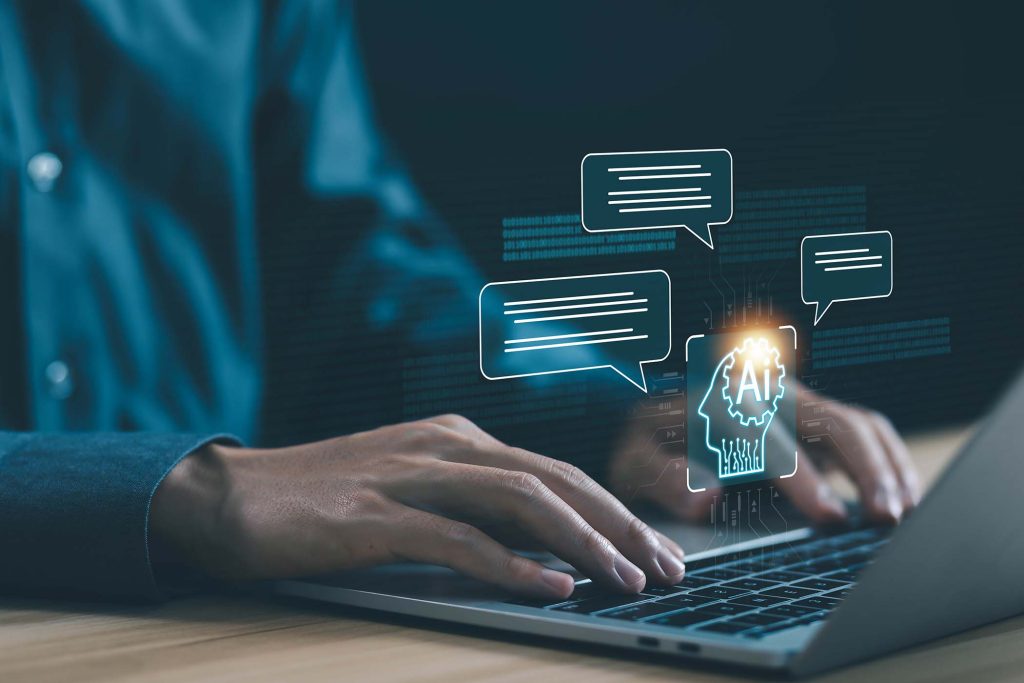In March 2023, a data breach hit Latitude Financial Services. It impacted more than 14 million people in Australia and New Zealand. Their compromised data included personal information, passports, and some financial records.
The company called it a “distressing development” due to the size of the breach, and it reportedly costed them about $76 million. Non-tangible consequences also included operational disruption, customer dissatisfaction, and potential future risks to the affected customers.
The development of Artificial Intelligence (AI) over the last couple of years has certainly impacted the sophistication of such attacks.
In this article we go through how can your cyber security strategy prevent this from happening to your business? And how can you use Artificial Intelligence (AI) to supercharge your cyber security measures?
Cyber Threats: A Persistent Problem
Cyber-attacks in Australia are continuously ramping up as found in the Annual Cyber Threat Report for 2022-2023. It noted “the persistent threat that state cyber capabilities pose to Australia” as “Australians [remain] an attractive target for cybercriminal syndicates around the world.”
The Dark Side: How Cyber Criminals Leverage AI
“AI-enabled cyberattacks… will only grow as we witness new advances in AI methodology, and as AI expertise becomes more widely available,” according to The security threat of AI-enabled cyberattacks report.
Cyber criminals are now leveraging AI to launch precise, effective attacks. AI is also being used to:
- Identify vulnerabilities in target organisations
- Make it more difficult for common security tools to detect threats
- Scale up social engineering attacks, such as by impersonating trusted personalities
But what’s on the other side of AI for cyber security?
AI for Business: A Game Changer for Cyber Security
The role of AI in protecting businesses is rapidly expanding. AI can now analyse vast amounts of data and identify patterns, leading to advanced threat detection. You can harness such capabilities to attain:
- Efficiency in cyber security analysis
- Quick cyber threat identification
- Fast and effective response to cyber-attacks
- Reduced cyber security costs
The Future of Artificial Intelligence for Businesses’ Cyber Security
The potential developments in AI have multifaceted implications for cyber security, as detailed below.
Enhanced Threat Detection and Response
AI and automation can improve the speed and accuracy of threat detection and response. Imagine a company’s network that has several connected devices. Each device generates loads of data every day – login times, file accesses, network requests, and more. That can be quite tedious for a human team to monitor in real time, but it’s just a breeze for AI-driven tools.
The AI system can also be trained to understand what ‘normal behaviour’ looks like. It can note that certain employees usually log in at specific times and access certain files. If a user logs in at an unusual time or downloads huge amounts of files, the AI system can flag it as an anomaly or a potential threat. The system can then automatically alert the cyber security team and even take immediate action, such as blocking the user or shutting down the network.
AI tools can also be used to analyse email content and spot suspicious links or attachments, so phishing attacks become more easily detectable. Malware attacks are also easier to notice thanks to network traffic analysis and identification of suspicious behaviour.
Effective Threat Remediation
In addition, AI for business can automate incident response processes and identification of software and hardware vulnerabilities. More advanced applications of AI are being developed to help security teams remediate threats faster and more easily, which could make more effective and tailored remediation recommendations.
Emerging AI Technologies in Cyber Security
Many AI technologies are already being used or being developed for cyber security and new ideas continue to emerge. For example, the following are in various stages of development:
- Automated Penetration Testing: The process of penetration testing can be automated via AI. This can help to identify vulnerabilities in a system or network.
- AI-Powered Risk Assessments: AI is being used to automate risk assessment processes. This can lead to easier identification of potential threats and vulnerabilities.
- Dynamic Deception Capabilities via AI: AI is being used to develop dynamic deception capabilities. This strategy aims to divert cybercriminals away from an organisation’s assets and lead them towards decoys or traps.
- AI-Based Patch Management: AI can help to ensure that security vulnerabilities are fixed as soon as patches become available. The streamlined process can make it more efficient and proactive.
- AI-Assisted Development: AI is being used to assist in the development of software. It can help in code generation, understanding context, predicting errors, and improving speed and efficiency.
Expect Hyper-Amplified AI Power Through Quantum Computing
Quantum computing is an exciting development on the farther horizon of AI-driven cyber protection. A quantum computer can solve a problem in minutes, which would take today’s supercomputers thousands of years to tackle – an unprecedented computational power that could revolutionise AI and its capabilities for cyber security.
Advancing Your Strategy with Cyber Security Services
It’s an exciting time for AI in business and cyber security because the future holds endless possibilities. As the field keeps evolving, many more innovative AI applications will arise – and you must keep-up-to-date.
At Lucid IT we make it our mission to support SMBs in Victoria with the latest technology advancements and this goes through our continuous industry learning.
We know that by incorporating AI advancements into our cyber security processes, we can safeguard your assets more effectively.
Get in touch with us today and let’s review your cyber security posture and identify the gaps so you can move it forward.
